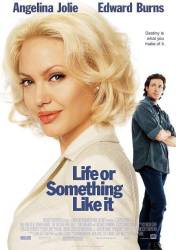
Question: Excluding plot device, when Lanie goes to see Prophet Jack a second time, why didn't she simply ask him how she was going to die?
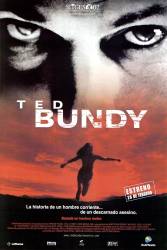
Question: How did Ted Bundy manage to fool law enforcement, and evade them for years before finally being arrested?
Answer: I don't think he fooled police. He was clever and able to commit murders without leaving enough evidence to directly tie him to the crime. Eventually there was enough physical as well as circumstantial and eye witness accounts to convict him. He evaded police for stretches of time by flying under the radar and carefully calculating his moves. Weird writing about this as he terrorized my city.
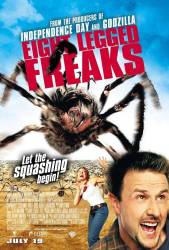
Question: Do the spiders grow big because of the food that they are fed, or because of the chemicals spilled in the water?
Answer: Both! The owner of the spider farm was feeding the spiders bugs from the water that had the chemical spill in it. The bugs were contaminated with the chemical, thus contaminating the spiders. Note: The man who owned the spider farm had no idea about the contaminated water.
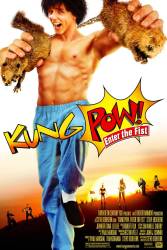
Question: Does anyone know if they are really going to make a sequel (Kung Pow: Tongue of Fury)? Or was this just a simple joke at the end to get one last laugh?
Answer: If they do, it will come out in 2006, as it says on IMBD.
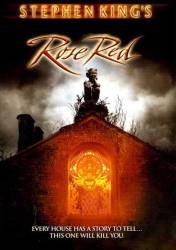
Question: After Emery has his fingers cut off and everyone is trapped in the room, Nick informs everyone that Kevin Bollinger hung himself in the Mirror Library after letting Emery's mother into the house. This would make him a ghost obviously, but this creates a problem. How has he been able to appear as a ghost for so long if he must have been alive to let Emery's mother into the house? Did I miss something?
Chosen answer: It was actually the bloated corpse of Kevin that let Emery's mother in, so he wasn't alive when letting her in.
Answer: Then Nick should have said he hung himself before letting Emery's mother in. Also, he turned into a bloated corpse pretty fast but the house has a way of playing tricks.
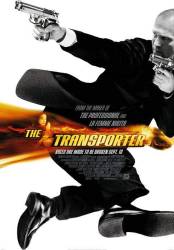
Question: After the Transporters BMW gets blown up he goes back to the house and starts beating everyone up. Whats the song that plays during the the whole scene? I don't think it's on the soundtrack.
Answer: It's not in the soundtrack. The song is "Fighting Man" by "DJ Pone & Drixxxe".
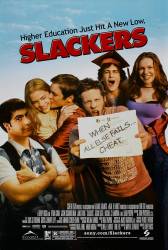
Question: When the movie shows the two at the pool jumping in, from where do they jump off? I didn't see any diving board at the pool.
Answer: It was a simple jump into the pool, it was filmed to make more elaborate.
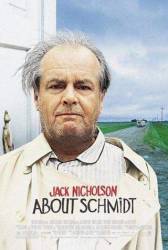
Question: When Randall takes a photo of Warren and Jeannie at the airport after the mother's funeral, what happens to the camera he uses? He seems to put it down on something behind Warren, but then walks past Warren to get his luggage. Warren walks forward toward the gate and isn't seen to pick anything up after saying goodbye. I guess he could have, but wouldn't it have been stolen by then if it was left behind? I didn't see Randall put it in a pocket or bag.
Answer: He could have picked it up. Besides, it may not have been stolen, but picked up by security, or otherwise taken to Lost and Found.
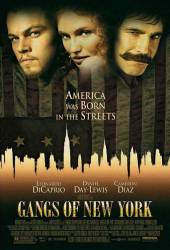
Question: Can someone please explain to me why the audience and Amsterdam are supposed to hate Butcher so much and think he's a loathesome person? He killed Vallon during a fight, fair and square, and was nothing but respectful to his dead enemy. He almost seemed to have regretted killing Vallon. He didn't act like a worse scum than anyone else until quite a while into the film.
Answer: Well, rather obviously, Amsterdam hates him because he killed his father. I mean, wouldn't you? It hardly matters that the fight was fair and that Bill showed respect about it, Amsterdam's not exactly likely to turn round, say "oh, that's alright then" and walk away. William Cutting (or William Poole, as he was in reality) was a ruthless, vicious man, who pretty much stopped at nothing to cement his control of the area. Whether he was actually worse than many of the others is questionable, but the film is based on Amsterdam's view of things - in that view, Bill is the enemy and we're supposed to see him as such.
Answer: Because he's very racist. That's why the audience hates him. He's very racist.
Answer: Because he was a racist? Secondarily while others might have acted that badly in his situation he was the one with the power and therefore the one holding a city hostage.

Question: At school, Starla makes fun of a supposedly lesbian girl by asking if the girl's perfume is "C.K. Spam." What does that mean?
Answer: CK, which stands for Calvin Klein, is a brand of perfume. Spam is the cheap ham meat in a can. So she's indicating she smells like the meat or could be a subtle way of calling her a pig.
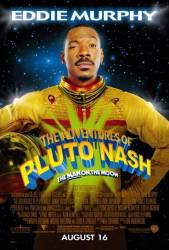
Question: I know Hilary Clinton is on one of the denomination of the lunar money. But at the end, when Felix is in Pluto's new club, there's money sitting on a waitress' tray of a different denomination with someone else on it. Who is on that bill? If there were other bills seen (i.e. deleted scenes) who is on those?
Answer: You can't see any other bills and there are no deleted scenes that show the money either. The only money gag in the film is with Hilary Clinton.
At 1:27:38 there's money on the waitress' tray that does not appear to be Clinton as the profile angle is different.
That's true but you cannot see it well enough to answer the question of who is on the bill.
I couldn't tell either, or find it online. That's why I asked, hoping someone with knowledge of Pluto Nash props would know or perhaps it was mentioned in a DVD extra somewhere. It's clear that it's lunar money and time and effort went into making it, so someone has to know.

Question: What are the name and artist of the song that is playing after Ali is driving to Staines, near the beginning of the film? The lyrics are repeatedly "wicked" or "wickit" or something like that.
Answer: It's called Incredible, by M-Beat featuring General Levy.
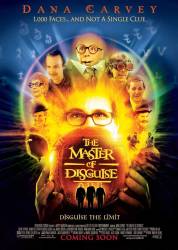
Question: I don't understand it when Pistachio's mother, on the camera screen, saying "no more caramel corn for me." What was that about?
Chosen answer: Bowman has captured Fabrizzio, and he has to do something with Mrs. Disguisey, so he says "Thanks to a special potion we put in the caramel corn, she thinks she is still at home preparing dinner," and then we see her on the TV screen eating the caramel corn and making food. She then later "pretends" to prepare food, then when Bowman tells the guard to pounce on Mrs. Disguisey, she whacks him, as if she were aware that she has been captured. She then informs the camera "No more caramel corn for me."
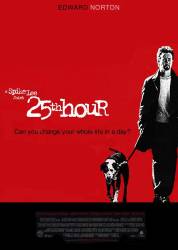
Question: Wasn't the plan that Monty's father thought about actually bad, at the end? I mean, even if Monty started a new life far from New York and his friends and family and never got recognized, his father would be arrested when coming back to New York. Suddenly him and his father disappear and later on his father gets back to New York, a little bit suspect no?
Answer: Monty's father was suggesting they go into hiding together. He was not suggesting that he would take Monty out west and return to New York himself.
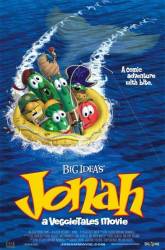
Question: This may sound like a silly question, but who are the pirates who don't do anything?
Answer: Exactly what they call themselves. Pirates who don't do anything, they just stay home and lay around. It's from a veggie tales silly song from an older release.
Would they be genuine pirates if they didn't do anything? A pirate is basically a person who attacks, and robs ships at sea.
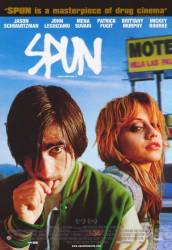
Question: How old are the characters in the film?
Answer: They never mention age, as far as I can see, and I just watched it recently.
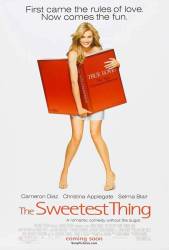
Question: What are Jane and Christina talking about when they are waiting for Courtney to get off the trolley before they eat at the Chinese restaurant? Can anyone read their lips?
Answer: She is talking about her dream that she had. When her hands are at her mouth she is referring to the ice cream that she was eating while he was performing "sexual acts" on her.
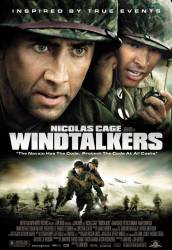
Question: I can understand why they would use code when talking about positions, objectives, etc. but when they call in the air strike from the battleships, what's the point of using code? Also, later in the film, when the same situation arises, they don't use the code. Seemed like it was just a silly way to introduce the whole premise for the movie.
Answer: The point of using the Navajo code to call in air strikes was to encrypt what the Marines were requesting without the Japanese being able to decipher what was said. This is critical because during the Battle of Saipan, the Japanese made extensive use of caves and reinforced earthworks to support their artillery positions and machine gun nests. The delay between requesting artillery support and the act of carrying it out allowed the Japanese to withdraw their infantry to relative safety before the fire mission could commence. By using PVT Yahzee and PVT Whitehouse, they were able to circumvent this and request attacks without the Japanese knowing what was coming. The only time Yahzee does not use the code is when he uses the Japanese radio to call off the artillery strikes that were falling short and hitting Marines. This situation required immediate attention and it would not have been appropriate to use the code.
Answer: They used the code to call in the strike so the Germans couldn't get the U.S. to bomb their own troops. I don't know why it wasn't used in the other situation.
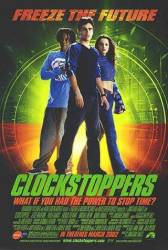
Question: In the scene where the hypertime QT agents are in Zak's house, one of them gets sprayed with liquid nitrogen, bringing him down to normal time. But, if he is in normal time, wouldn't Zak's mom and sister see him? Don't you think they would call the police after seeing a stranger in their house?
Chosen answer: Probably, but it's not essential to the plot so there's no reason to show it.
Answer: These are top agent like figures who likely don't want many people knowing what's going on. Those still in hypertime probably carried the normal-time agent out of the building before Zak's mom found him.

Answer: Probably one of many reasons. It could be fear, denial, inevitability, accepting one's fate, and so on. Not many people want to know exactly when and how they will die.
raywest ★